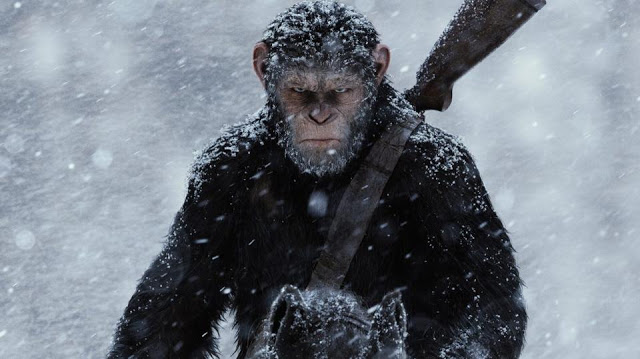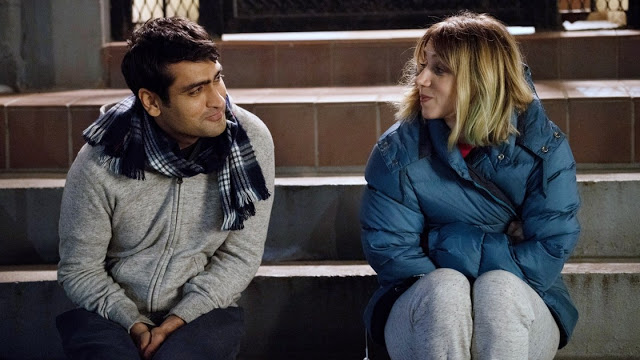War for the Planet of the Apes: No More Monkeying Around
Columns of soldiers goose-step in perfect rhythm, staring upward with reverence at their messianic leader. Behind them, enslaved prisoners, chained and starving, lug giant blocks of stone, piling them into a towering wall. A flag, emblazoned with religious symbolism, hangs firmly alongside an embankment, like gang colors marking territory. The loudspeakers blare an anthem, and the foot soldiers unleash a thunderous war cry.
You might think, from this bleak and jingoistic description, that I’m discussing a documentary on the Third Reich. But the anthem is “The Star-Spangled Banner”, and the flag is colored red, white, and blue. So when the leader orders his zealots to purge the world of an inferior race, he isn’t just marshaling his troops for battle. He’s putting America first.
Such is the chilling subtext of War for the Planet of the Apes, Matt Reeves’ tense, bracing new saga of conflict and community. As you can gather, the politics on display here are not exactly subtle, even if their allegorical impact may be more acute than intended. (Shooting took place well before the 2016 presidential election.) But while the film’s nationalist rhetoric and iconography may feel distressingly plausible, they are not the movie’s primary draw. No, what makes War for the Planet of the Apes so successful is that it’s a genuinely thrilling action movie, replete with exhilarating combat sequences and grand adventure. Had it been released ten years ago, it would still feel essential, getting both your blood pumping and—in more of a surprise—your tear ducts flowing. Read More





